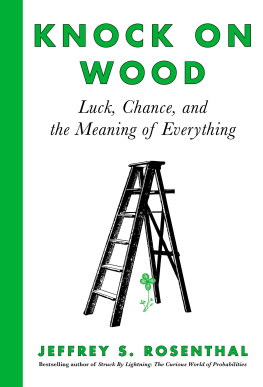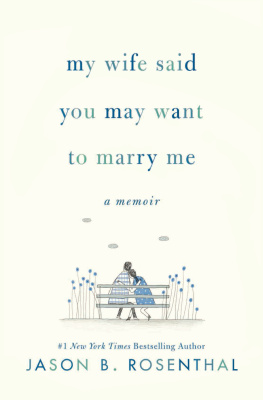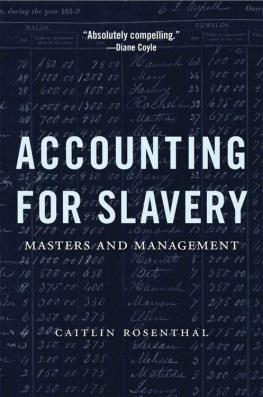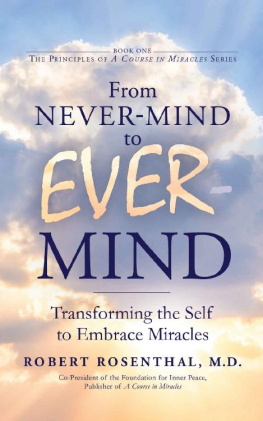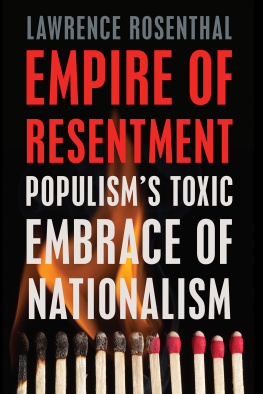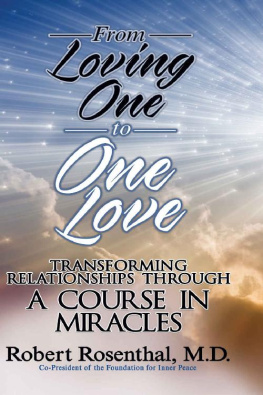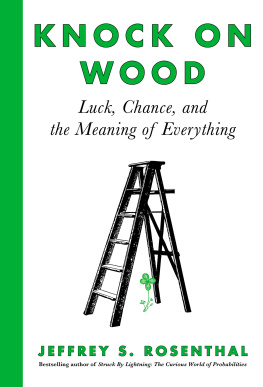Contents
Guide
Contents
Australia
HarperCollins Publishers Australia Pty. Ltd.
Level 13, 201 Elizabeth Street
Sydney, NSW 2000, Australia
www.harpercollins.com.au
Canada
HarperCollins Publishers Ltd
Bay Adelaide Centre, East Tower
22 Adelaide Street West, 41st Floor
Toronto, Ontario, Canada
M5H 4E3
www.harpercollins.ca
India
HarperCollins India
A 75, Sector 57
Noida
Uttar Pradesh 201 301
www.harpercollins.co.in
New Zealand
HarperCollins Publishers New Zealand
Unit D1, 63 Apollo Drive
Rosedale 0632
Auckland, New Zealand
www.harpercollins.co.nz
United Kingdom
HarperCollins Publishers Ltd.
1 London Bridge Street
London SE1 9GF, UK
www.harpercollins.co.uk
United States
HarperCollins Publishers Inc.
195 Broadway
New York, NY 10007
www.harpercollins.com
Knock on Wood
Copyright 2018 by Jeffrey S. Rosenthal.
All rights reserved under International and Pan-American Copyright Conventions. By payment of the required fees, you have been granted the nonexclusive, nontransferable right to access and read the text of this e-book on-screen. No part of this text may be reproduced, transmitted, downloaded, decompiled, reverse-engineered, or stored in or introduced into any information storage and retrieval system, in any form or by any means, whether electronic or mechanical, now known or hereafter invented, without the express written permission of HarperCollins e-books.
Published by HarperCollins Publishers Ltd
FIRST EDITION
Front of Cover images: iStockphoto.com
Cover design: David A. Gee
EPub Edition: August 2018 ISBN: 978-1-4434-5309-7
Version 09112018
Print ISBN: 978-1-4434-5307-3
HarperCollins Publishers Ltd
Bay Adelaide Centre, East Tower
22 Adelaide Street West, 41st Floor
Toronto, Ontario, Canada
M5H 4E3
www.harpercollins.ca
Library and Archives Canada Cataloguing in Publication information is available upon request.
LSC/H 9 8 7 6 5 4 3 2 1
A s a university professor who specializes in the mathematics of probability and statistics, I am dedicated to spreading knowledge and wisdom about the workings of randomness and uncertainty. I have confidently answered questions about all sorts of probability-related subjectslotteries, airplane safety, election polls, crime rates, gambling odds, sports statistics, medical testing, and more. But then, every once in a while, someone asks me if I believe in luck. An awkward pause follows, and then I try to eke out a reply.
Do I believe in luck? Well, sure, of course I do. Sometimes things work out well, and sometimes they dont. Sometimes external forces make life difficult, and other times they come together just right. In my own case, I was lucky enough to be born into a middle-class family that valued education and started me on the path to success. I was lucky enough to grow up in a peaceful, safe, prosperous country. I was lucky enough to be admitted to top universities, leading to a good academic position with the job security of tenure. Of course I believe in luck!
Do I believe in luck? No, certainly not. Some people believe in such things as unlucky numbers, astrological predictions, and lucky charms, which all seem like bunk. There are no known physical laws that could produce a causal connection between actual life outcomes and any of these unusual items, nor have careful experiments ever shown any consistent relationship between them. Seriously believing in any of them seems a bit absurd. And just because good things have happened to someone so far does not mean that pattern will continue. The past does not predict the future, patterns are not set, and no one is guaranteed any luck at all. Of course I dont believe in luck!
Do I believe in luck? In the end, it depends what you mean. Luck is one of those words that can be interpreted in many different ways. I once did a radio interview where they asked me to begin by giving a simple, short definition of luck. I soon discovered that I couldnt do that, and the entire interview got bogged down in a debate about what we were actually talking about.
If you say something happens by luck, then it is clear you are denying that it happened due to established scientific cause and effect (like a ball falling to the ground because of gravity), or due to hard work (like passing your final exam because you studied hard), or due to specific intent (like a bucket of water dumping on your head because your goofy friend left it balanced on top of your door). But if that is what luck isnt, then what is it that luck is?
Sometimes people use the word luck to simply describe events that are outside of our control or prior knowledge, a sort of dumb luck or random luck. We cannot predict such luck, only notice it in hindsightfor example, you go to the store to buy sneakers and find that they are on sale this week, which you hadnt known or suspected before leaving your house. Or youre visiting a foreign city when terrorists attack, and youre relieved to hear that their bomb went off on the opposite side of town from your hotel. These are indeed instances of getting lucky, but only in the sense of benefiting from a situation you could not influence or predict in any way. And if that is all there is to it, then its nothing but dumb, random luck.
On the other hand, sometimes people use the word luck to allude to certain special powers that magically affect the futureeverything from lucky charms, like rabbits feet and four-leaf clovers, to supernatural predictions made by horoscopes, fortune cookies, and tea leaves, to fate about what just had to happen, to karma taking its sweet revenge, to simply being a magically lucky guy to whom good things must always happen. All of this implies a sort of forceful luck, a special kind of luck that can be predicted in advance and affects the probability of future events, based not on scientific laws or hard work or other fact-based explanations, but rather on other, ethereal causes.
So, which one is correct? Does luck refer to something that is dumb and meaningless, or to something that is forceful and magical?
So many people believe in a special luck force, in one form or another. They scoff at my usual scientific approach to randomness and luck, incredulous that I could possibly imagine that probability and scientific causes are all there is. Could they be right and I be wrong? How can we truly measure and evaluate luck? How can we decide which predictions are accurate and which are nonsense? How can we figure out what causes what? How can we determine what really does govern the randomness all around us?
And how could I sort this all out? Well, maybe by writing a book.
In the pages that follow, I will discuss various examples of luck at work and try to sort out lucks meaningor lack thereof. Some of the questions I will ponder include:
- Why am I, like so many others, attracted to fictional works like Macbeth and Shoeless Joe whose plot lines centre around concepts of luck, fate, and destiny? Why do we love magic in our stories? Are we rejecting scientific attitudes each time we read them? And should we then expect life to imitate art by following its own rules of destiny and magical meaning?
- If a friend tells me that sun rays shining through some tree branches were a sign to bring her comfort, is she onto something? Were those sun rays specially designed to cheer her up, or were they just random? And if they were random, does that make her comfort less real?
- When sports fans face the disappointment of their team losing, why are they so quick to blame it on superstitious curses? Does their belief fulfill some need? Is there any logic to their feelings?
Next page
